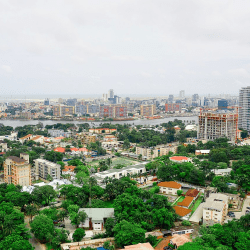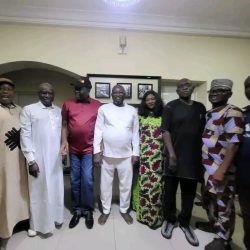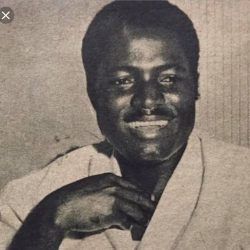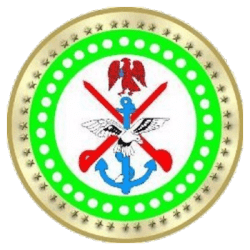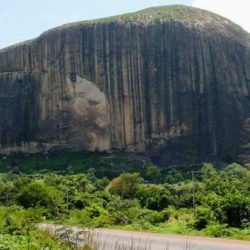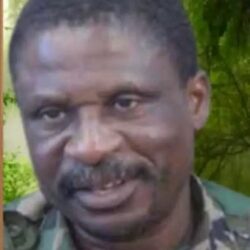Joe Akaahan (Joseph Ronald Ityowua Akaahan Agbo Kpile) was a prominent Nigerian military officer and the Chief of Army Staff (COAS) during a pivotal period in Nigeria’s history. His career was marked by leadership, strategic contributions to the Nigerian Civil War, and his tragic and untimely death in a helicopter crash on August 6, 1967.
Early Life and Education
Born on April 12, 1937, in Mbakaange, Kunav, within what was then the Gboko Native Area Council (now part of Vandeikya Local Government Area, Benue State), Akaahan exhibited exceptional promise from a young age. He pursued secondary education at Government College Keffi, earning the Cambridge School Certificate between 1952 and 1956.
Akaahan’s military journey began at the RWAFF Training School Teshi, Ghana (1957–1958), and culminated in advanced training at the prestigious Royal Military Academy Sandhurst, United Kingdom (1958–1960). He was commissioned into the Nigerian Army on July 23, 1960, symbolizing the rise of indigenous leadership in the nation’s armed forces shortly after independence.
Military Career
Early Assignments:
Akaahan distinguished himself early in his career, serving with the Nigerian Contingent during the United Nations Peacekeeping Operations in Congo. His performance in peacekeeping missions established his reputation as a capable officer.
Role in the January 1966 Coup
During the turbulent January 1966 coup, the 4th Battalion in Ibadan, which lost its northern commanding officer, faced significant unrest. Major Nzefili, an Igbo officer, was appointed to lead the battalion, but northern officers resisted his authority. Recognizing the potential for broader dissent, then-Head of State Major General Johnson Aguiyi-Ironsi replaced Nzefili with Major Joe Akahan, a Tiv officer trusted to stabilize the battalion.
Appointment as Chief of Army Staff
In May 1967, Col. Joe Akahan was appointed Chief of Army Staff, succeeding Major General Yakubu Gowon during a period of increasing tension that would erupt into the Nigerian Civil War. Akahan’s tenure as COAS, though brief, was defined by strategic foresight.
He played a crucial role in conceptualizing the sea-borne operations led by Colonel Benjamin Adekunle, which resulted in the successful capture of Bonny in July 1967, a significant victory for the Federal Government.
Tragic Death
Col. Joe Akahan’s life was tragically cut short on August 6, 1967, during the early stages of the civil war. After visiting the frontline in Nsukka, he returned to his hometown in Gboko for a brief rest. He then set out to Makurdi to meet Kam Salem, the Chief of the Nigerian Police.
The Helicopter Crash
While en route, his helicopter crashed near Wannune under mysterious circumstances. Eyewitnesses reported a mid-air explosion, describing a fireball and the subsequent crash of the helicopter. Allegations arose of sabotage, including claims of a bullet hole in the helicopter’s under-panel, suggesting possible foul play from within the aircraft.
Notably, Sen. Joseph Sarwuan Tarkaa, then Federal Commissioner of Transport and Akahan’s kinsman, had expressed concerns about the safety of flying at dusk. He warned that the aircraft might be mistaken for an enemy helicopter and targeted by either Federal or Biafran forces.
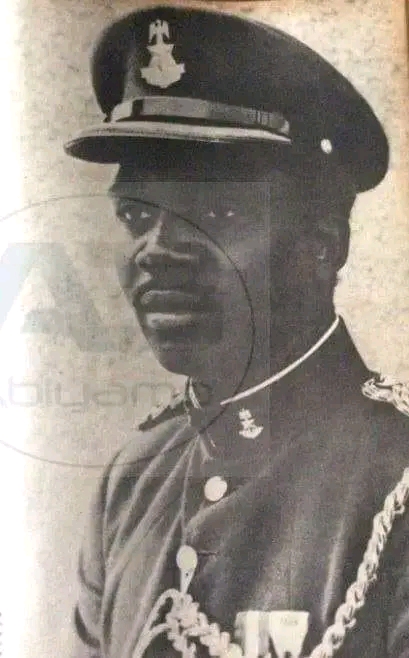
Legacy
Despite his short tenure as COAS, Col. Joe Akahan left an enduring legacy:
He was succeeded by Hassan Katsina, who, although less experienced, continued efforts to stabilize the Nigerian Army during the war.
Joe Akahan Barracks, located in Makurdi, Benue State, stands as a tribute to his service and sacrifice.
His strategic contributions during the nascent stages of the civil war underscore his pivotal role in Nigeria’s military history.
Col. Joe Akahan’s life exemplifies dedication, courage, and a commitment to national unity during one of Nigeria’s most challenging periods.
